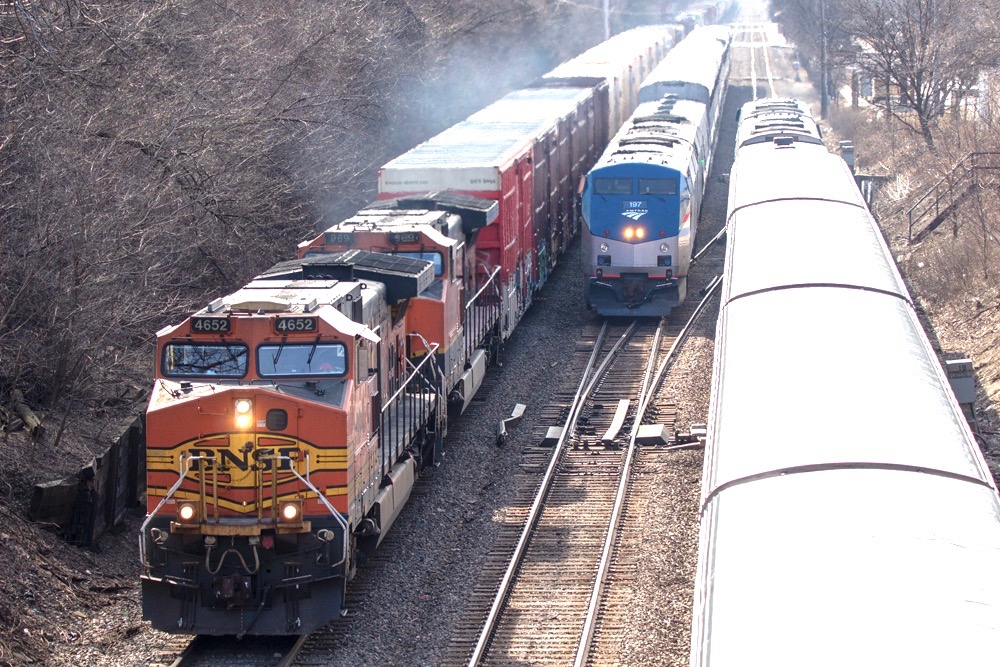
WASHINGTON — In theory, any organization’s board of directors must possess enough expertise in the business it oversees to analyze and pass judgement on whether management’s policies fulfill the organization’s goals.
In Amtrak’s reauthorizing Infrastructure Investment and Jobs Act enacted last November, Congress was clear it now requires board members exercising such oversight to possess geographic diversity and operational experience. The goal: strengthening all aspects of the national network, not any one region.
Given those conditions, and evaluated as a group, the nominees presented by President Joe Biden for approval by the senate don’t check all those boxes [see “Biden to nominate five to Amtrak board,” Trains News Wire, April 29, 2022].
The legislation passed in November [see “Infrastructure bill addresses Amtrak priorities …,” News Wire, Nov. 8, 2021] replaced language calling for a 10-member board with “balanced representation of the major geographic regions served by Amtrak” with specific requirements:
— Two members residing along Amtrak’s Northeast Corridor
— Four “geographically distributed” outside the Northeast, with two from states served by state-supported service, and two from states served by long-distance trains. A single individual cannot fill both a state and long-distance slot.
Additionally, no more than five nominees can belong to the same political party, and representation should be considered for labor and the disabled community. One automatic member is the Secretary of Transportation or the secretary’s designee, typically the Federal Railroad Administration administrator. Amtrak’s president, currently Stephen Gardner, is the 10th, non-voting member.
One factor driving the lawmakers’ effort to develop a geographically balanced board is that all current members, including Chairman Anthony Coscia, are serving on expired terms, while two positions are vacant.
But another is clearly the attempt by current management in 2018 to significantly weaken the Chicago-Los Angeles Southwest Chief by suggesting its truncation with a mid-route bus bridge. This galvanized a bipartisan coalition of six senators from Kansas, Colorado, and New Mexico into making the route’s continuation a prerequisite for Amtrak funding.
President Donald Trump’s board nominees included two Democrats suggested by that party’s Senate leadership, but neither they nor his Republican choices were confirmed as a group. That’s because only one nominee — Normal, Ill., Mayor Christopher Koos — pledged to keep the national network intact in the September 2020 Senate confirmation hearings.
Koos is one of the five individuals re-nominated by Biden. But so is Coscia. As chairman, he engineered the selection of four Amtrak chief executives in the last five years that presided over national-network onboard service and marketing downgrades, management and employee buyouts, and equipment disinvestment decisions that have weakened the long-distance trains’ ability to generate revenue.
The three new nominees, like Coscia, are all from the Northeast Corridor region. Assuming Koos represents either a state-supported or long-distance vacancy (Bloomington-Normal is on the Texas Eagle’s route), that means the Republicans would presumably fill the three remaining long-distance or state-supported slots.
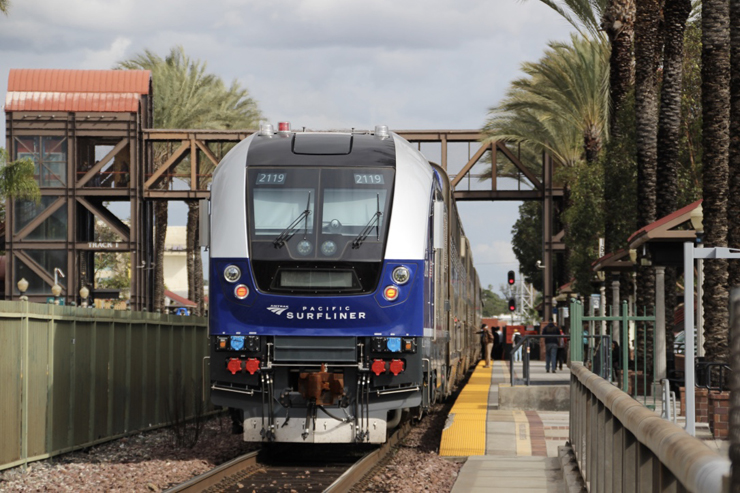
This is especially bad news for states with extensive Amtrak commitments. California’s three operating authorities, in particular, have been vocal about deficiencies in Amtrak’s cost allocation system under the company’s current management.
But aside from the geographical criteria Congress specified, none of these individuals appear to have the core business skills inherent in putting out a transportation product. Biden’s new board nominees include those who have experience understanding the needs of the disabled community and organized labor. Still, none have hands-on business credentials dealing with inventory pricing, sales management, or hospitality.
The most glaring weakness: there are no passenger railroaders here. Many experienced managers and craft employees who worked for Amtrak recently were enticed to take buyouts when told by current management, “we may not have a job for you.” There are also some recently-retired host railroad liaisons, “NRPC officers,” who have experience working collaboratively on operating aspects of Amtrak’s corridors and long-distance routes. Any number of them would make excellent nominees.
Oversight and transparency are needed. Many aspects of Amtrak’s operations are shrouded in secrecy, and the authorizing legislation requires the board to meet annually, with the disabled community, employees, and the traveling public. Those responsible in Congress for vetting prospective board candidates — from both parties — might well pay attention to the law they created when they make their selections.
— Updated at 12:30 p.m. on May 4 to fix links.






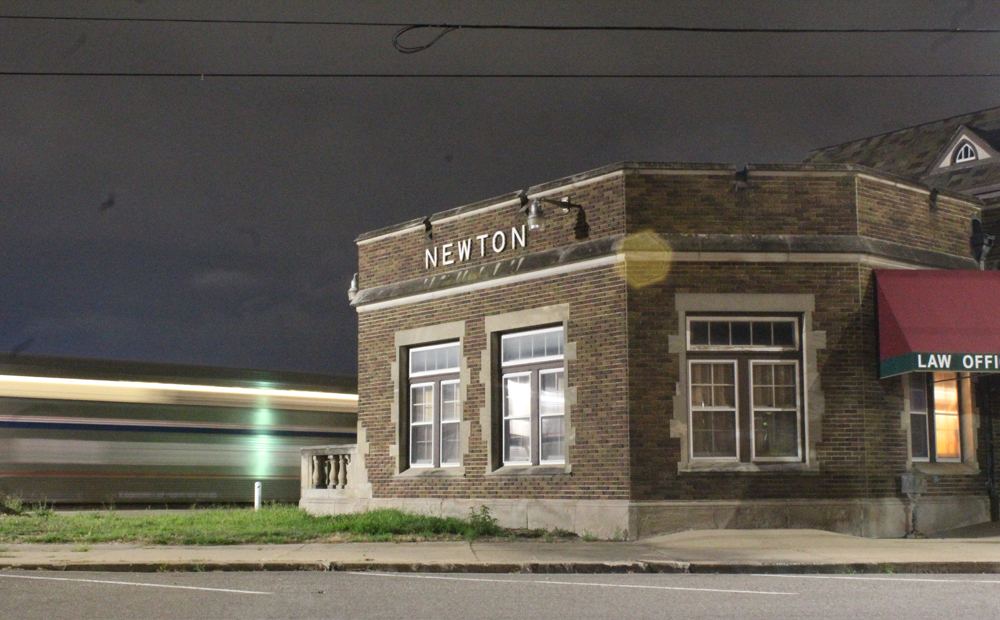
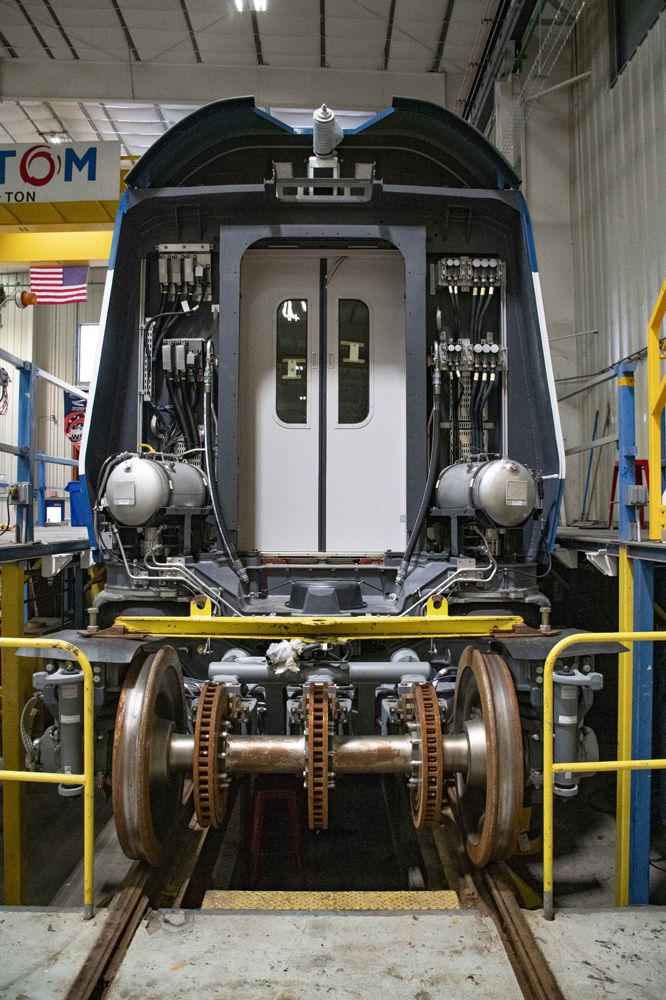
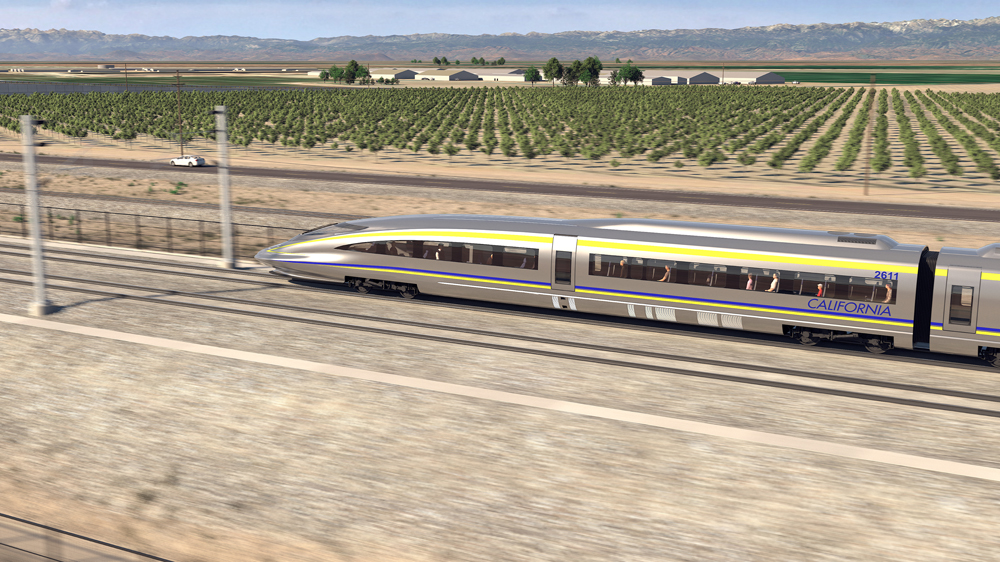
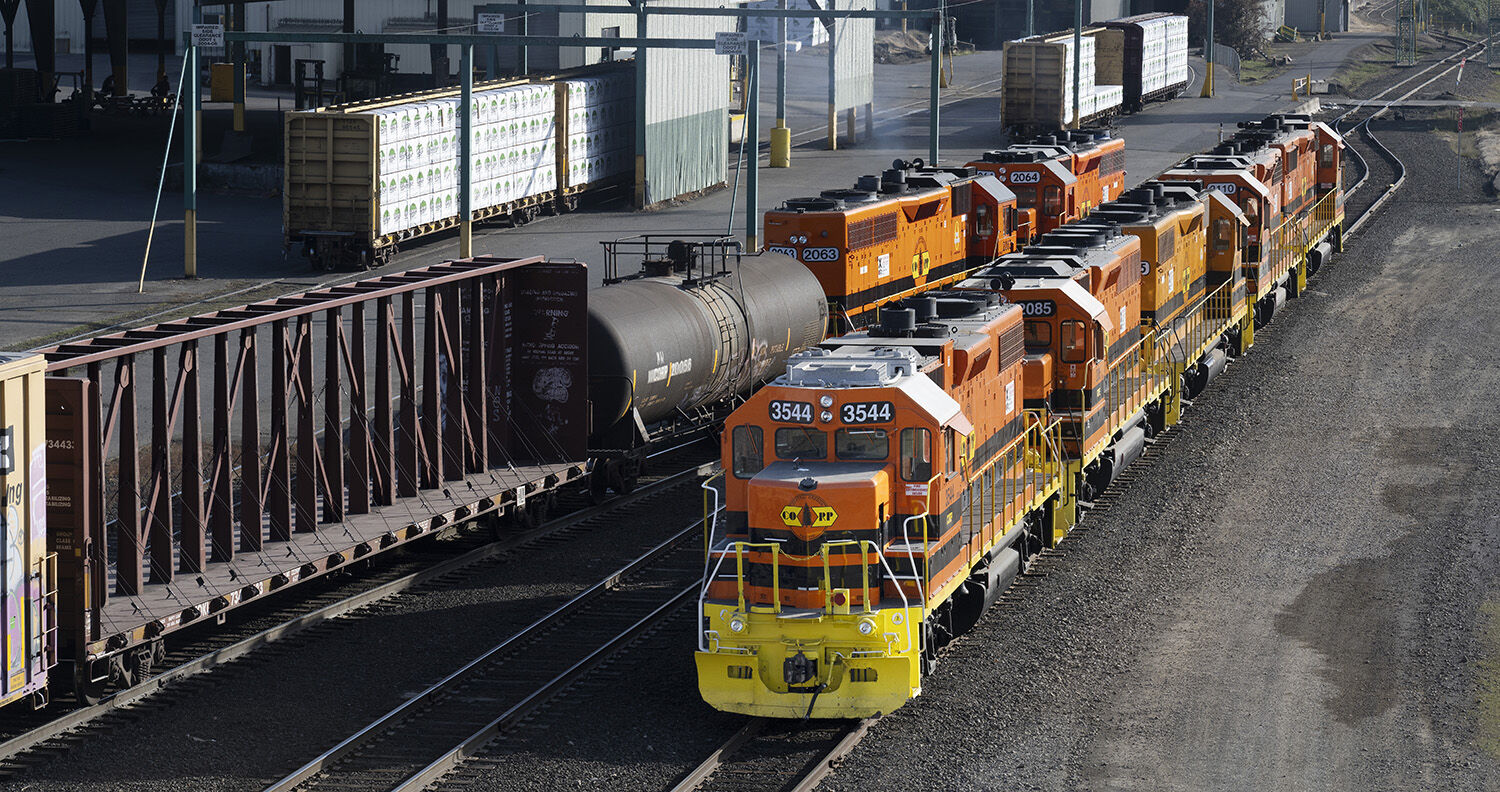
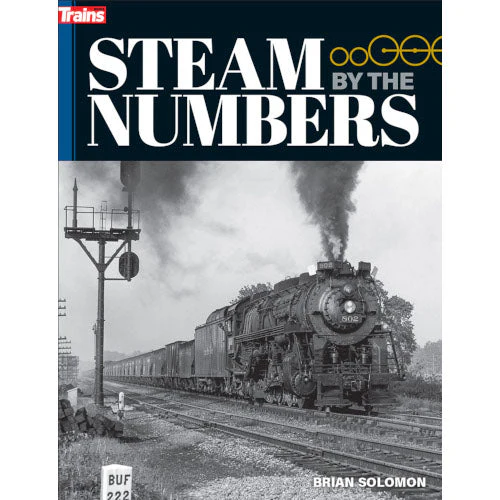


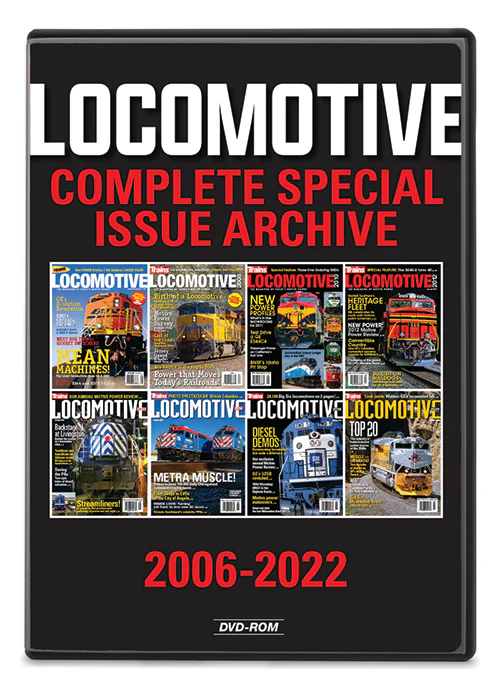
Results matter, no matter how fancy, paint has become.
Analysis by Bob Johnston as usual is spot on!.
He does tons of research. Who will take over for him when he retires? (He has not announced anything but he is no Spring Chicken as I am not either)
I too am a bit critical of NARP 100% glowing response to the appointments,but do understand that when you push for immediate action and get it– you need to be mostly positive. And I remain a member despite not agreeing 100% of everything they do, but I think that is part of being part of a team
For those who have not joined or dropped their NARP/RPA membership, but hope for more and better trains, a couple of honest questions.
Do you belong to other passenger rail advocacy groups? What are they besides Rail Riders Associaitons?
Where do you get your information besides Trains to base your advocacy?
How often do you communicate with your Congressperson, advocacy?
For everyone, how much priority does supporting passenger rail influence your vote? (I imagine for many it is not among the top 3)
As Samuel Clemons was fond of quoting, “COMMON SENSE AIN’T TOO COMMON.” As an 80 year old NARP member since 60s, I’m afraid I now shall never see decent rail passenger service again in our country during my lifetime. AMTRAK can’t even keep the inside and outside of its cars clean, how in Hades can we expect competency from such a nonfunctional organization? Kinda like RPA’s ridiculous logo. What do you expect from political and/or economic “leaders” who are only interested in Wall Street’s next dividend results. Unlike responsible leaders such as IKE and JFK we are now in the hands of the Draft Dodger generation, e.g., Biden, Cheney, Clinton, Romney, Trump, etc., etc. Good luck finding public spirited “leaders” from that group.
One of the first statements in this article is false, and that is having knowledge of the business a BoD is in charge of. Just look at BoD’s across most industries and you’ll find many individual who have no background in the business they’re on the Board of…it’s not necessary, what is necessary for any job is just COMMON SENSE.
Once again political connection raises its ugly head.
It appears Biden increases his record breaking nominations of unqualified personnel for his administration. My personal belief is he’s no longer mentally capable [if he ever was].
Can’t blame Biden for his appointees, as Biden doesn’t have the capacity to make a nomination. Clearly he’s not running the country, I don’t know who is, maybe Barack Obama, Ron Klain, or Michelle Obama. Certainly not Kamala Harris who is as brain dead as Biden is. The only thing I’m sure of is that it’s not Ron Klain in the Easter Bunny suit. Mr. Klain is Jewish, the Easter Bunny is required to be a Christian.
Same for the current STB board….
WOW go figure. Biden’s nominees aren’t really qualified. Nobody in his cabinet positions are either so why is this a surprise. Oversight and transparency, surely you jest.
But the Easter Bunny likes diversity!
If I could, I’d nominate Bob Johnston to the Amtrak Board. He’s the only columnist who acknowledges the freak show that Amtrak has become since Delta Dick came on the scene. Even though Anderson is gone, the damage he inflicted on Amtrak is alive and well.
Coscia’s role in the downgrading of the long distance trains is inexcusable.
Amtrak Joe my a**
And the RPA thinks the selections for the board are competent. I quit!
I’m not renewing. How about nominating John Robert Smith as Chairman?
That makes three, Lawrence. Me and one other forum member both posted yesterday (plus or minus) that we’re former RPA members.
RPA does nothing but shill for Amtrak. They were given a certain amount of access to Amtrak’s top management and for that they were given a very short leash on what they could say. They are the most pathetic and useless special interest advocacy organization that exists. I gave up years ago. And their state affiliates like CHI-based High Speed Rail Alliance, Albany-Schenectady-based Empire State Passengers Association, and Maine’s TrainRiders Northeast are just as bad.
Amtrak needs to rethink how they operate. One more time for the cheap seats.
They need to become more like the FAA and air traffic control.
Put rail slots up for bid which includes a track into a station (like CUS or Penn). Let private operators bid for those slots and let Amtrak be the traffic control, not the operator.
So if I am a company called “Great American Rail”, and Amtrak is putting a NYC to CHI slot up for bid, it includes 2 time windows, guaranteed track once reaching the station. Luggage management on a turnstyle (like an airport) so it can get the needed TSA screening. Daytime slots, especially during rush hours are more expensive whereas redeyes are the cheapest slots.
This will drive the ticket prices.
Ticket prices will be composed of:
– Operator Fee
– Franchise Fee
– Amtrak Service charge
– Security Fee’s (to cover TSA costs)
It will be assumed that the Security and Amtrak fees are fixed and can’t change during the contracted operator period. The franchise fee is to cover what the operator had to pay to win the deal and will be variable depending on what time slot they went after. The Operator Fee is strictly the cost of doing business for “Great American Rail” and is supposed to cover their trainset leases, staffing, equipment maintenance, etc.
The Amtrak fee should cover the fees Amtrak pays the Class 1’s to use their rail, covers trainset safety inspections and trainset certification costs (just like the FAA certifies airframes).
The operator can set the fare based on demand, their slot, the market they want to develop, where they subsidize the fixed fees themselves until they can establish a fare window that works and covers their costs.
This will provide a large private market to develop passenger rail. If cities want to develop a corridor for themselves they will have to work on a funding model with their host state that pays for the route to be built out. Once the route is in place they put it up for bid and an operator can be chosen based on the highest bid.
Certain routes cannot be bid out where all slots are exclusive to just one operator. NYC-CHI would be a multi-operator model. Whereas a PHI-Harrisburg could allow a an exclusive sine the volume may not permit more than one to function.
That is my 2 cents. I am sure there are other benefits/pitfalls to this approach, go ahead and post them.
Zero benefits and all pitfalls…as the United Kingdom has found out, no matter how solid a footing contract operators have, there will always be issues. The simplest solution to start with, and the one that would annoy the host RR’s the most, is to permanently legislate the priority of Amtrak service over freight…unless said host RR’s freight can keep up with the passenger train, oh, and while we’re at it: any line that hosts passenger trains must be maintained at a minimum of class 5 status.
Oh, Gerald Gerald Gerald ….. you let the cat out of the bag! The amazing thing about UK’s ginned-up set-up was that it worked as well as it did for as long as it did. Until it didn’t. This month marks a decade since I was in UK, at which time (May 2012) it all functioned like a Swiss watch. In the ten years since, Swiss watch has become Rube Goldberg.
Scotrail was a fiasco ran by Abelino (Dutch Company) The Scottish Government just cancelled the franchise and it is now a government ran passenger service. Be interesting to see how that works out.
Franchise, not fiasco. Darn spellcheck
Although I’m sure the locals thought it was a fiasco
I guess we can put Hunter Biden back on the board. He has no rail experience either but with his Chinese connections we might be able to build some REAL high-speed rail lines in this country.
John! I recalled that the UK created a system very similar to your proposals with various companies , i.e. Virginia Rail and others bidding for routes.
But due to the varied levels [mostly negative] of operators by the bidders the UK govt. opted recently to return to British Rail Service very similar to the govt. operated system prior to the bidding process. Unsure as to the reversal of the policy currently in the UK.
Bill Grant
Sorry for the typo. I meant to say…The nation needs a functioning rail passenger system that rivals or surpasses those of other industrialized nations.
It is time that the Amtrak board of directors is filled with people who understand and support the core business of the enterprise: providing quality rail passenger service the the nation.
While diversity goals are a good thing, they should take a back seat to running a good railroad. The needs a functioning national passenger rail system that rivals or surpassed those of other industrialized nations.
Am I correct that the nominees are individually voted up or down? At what point are the holdovers dismissed? Individually or as a group?
NEC = Nothing Else Counts.